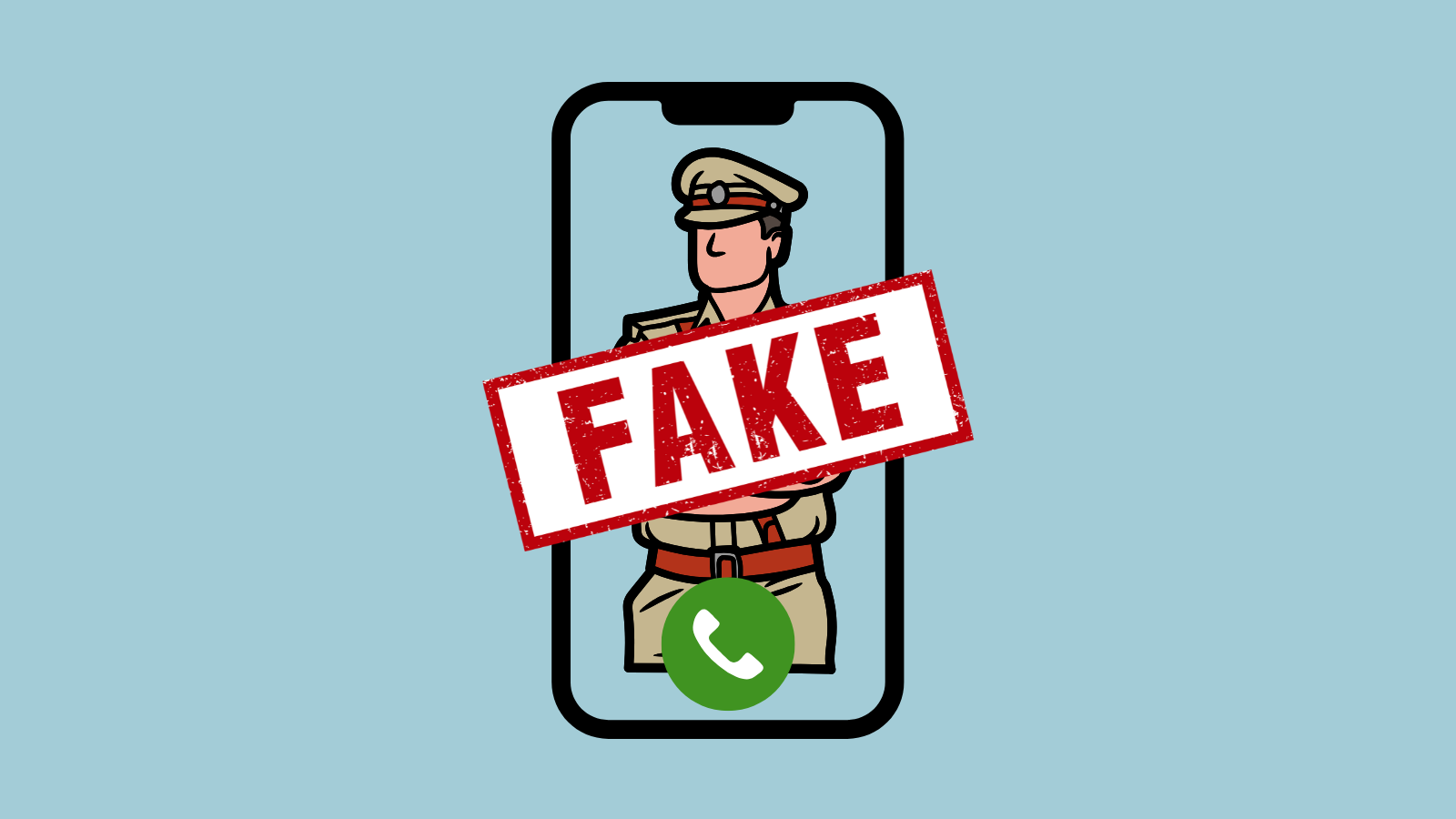Picture this: you’ve just wrapped up a long day when your phone lights up with a video call. A man in uniform appears, the background looks like a police station, and his tone is urgent. He says that a parcel in your name has been seized for containing illegal items. Within seconds, he flashes an official looking ID card and warns, “Cooperate, or we’ll have to arrest you.” Your stomach drops, it feels real. For thousands of Indians, this isn’t fiction, it’s happening every day. These are victims of the digital arrest scam, one of the fastest-growing cybercrimes in the country.
What Is a Digital Arrest?
A digital arrest doesn’t exist under Indian law. It’s a trap set by scammers pretending to be from law enforcement or government agencies. They accuse you of crimes like money laundering or drug trafficking and demand your cooperation to avoid arrest. It starts small sharing ID proofs or account details but quickly escalates to transferring money. Victims are often kept on video calls for hours, ordered not to speak to anyone, and made to believe they’re under virtual custody. It’s a mind game that turns fear into control and it works, because even though digital arrests aren’t real, the fear of being accused by authority feels all too real.
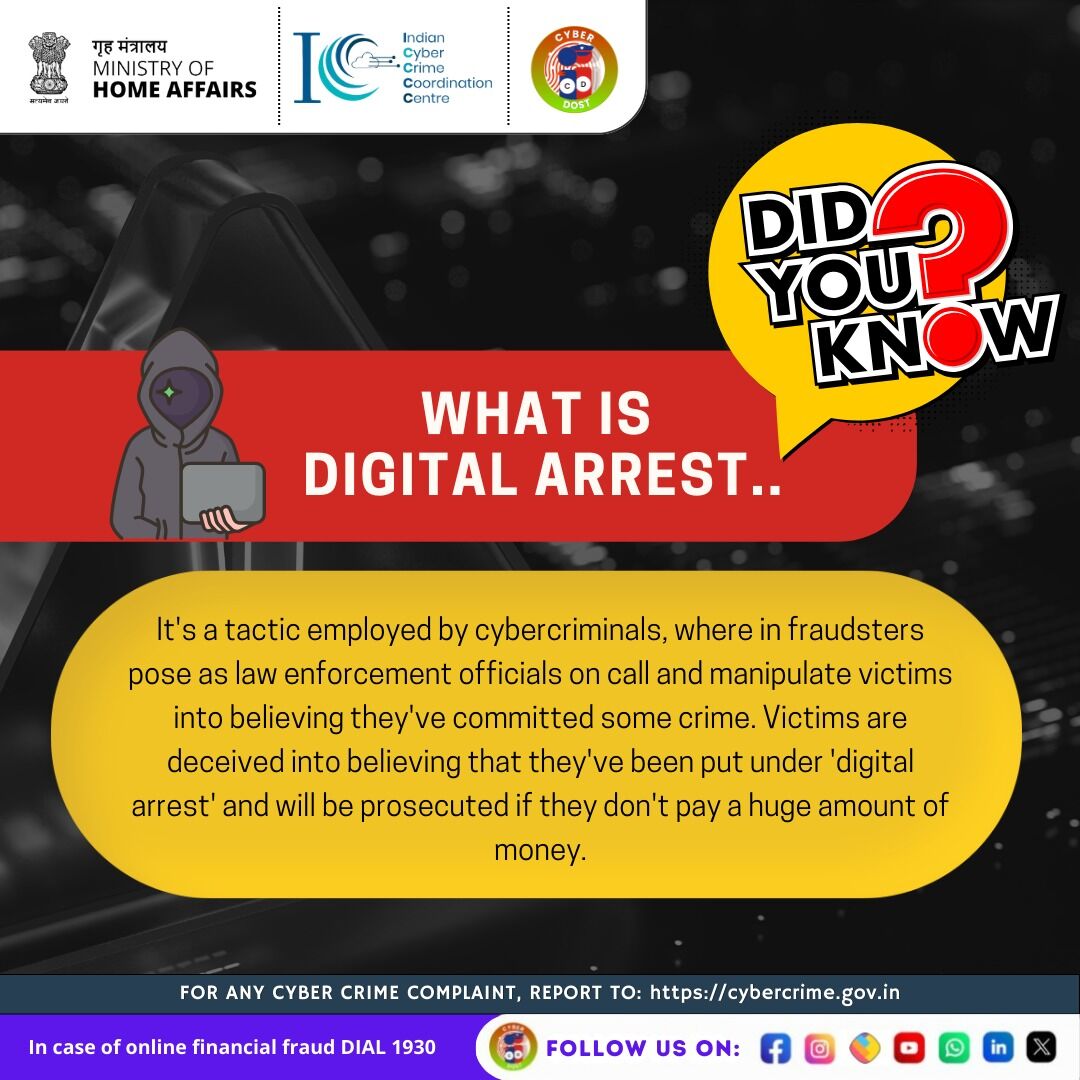
Source: Cyberdost on X
The Scale of the Scam
In 2024, there was a staggering surge in reported cases, with 1,23,672 incidents and a total defrauded amount of ₹1,935.51 crore. The momentum hasn’t slowed, in just the first two months of 2025, another 17,718 cases amounting to ₹210.21 crore have already been reported. These figures show how fast the menace is spreading, with scammers becoming more organised, tech-savvy, and relentless across states and even beyond borders.
Why Do People Fall for It?
Scammers don’t rely on luck, they rely on psychology, technology, and speed.
- Psychology: They induce fear of arrest or urgency to act, clouding judgment. By posing as trusted authorities, banks or government agencies they make even the smartest people panic and comply.
- Technology: Fake caller IDs, official-looking documents, and even deepfake videos make lies look true. In the heat of fear, reality and illusion blur.
- Speed: Once money is transferred, it’s instantly routed through multiple mule accounts, often overseas. By the time authorities are alerted, the trail has gone cold. Victims, too shocked or unaware, delay reporting, giving scammers a head start.
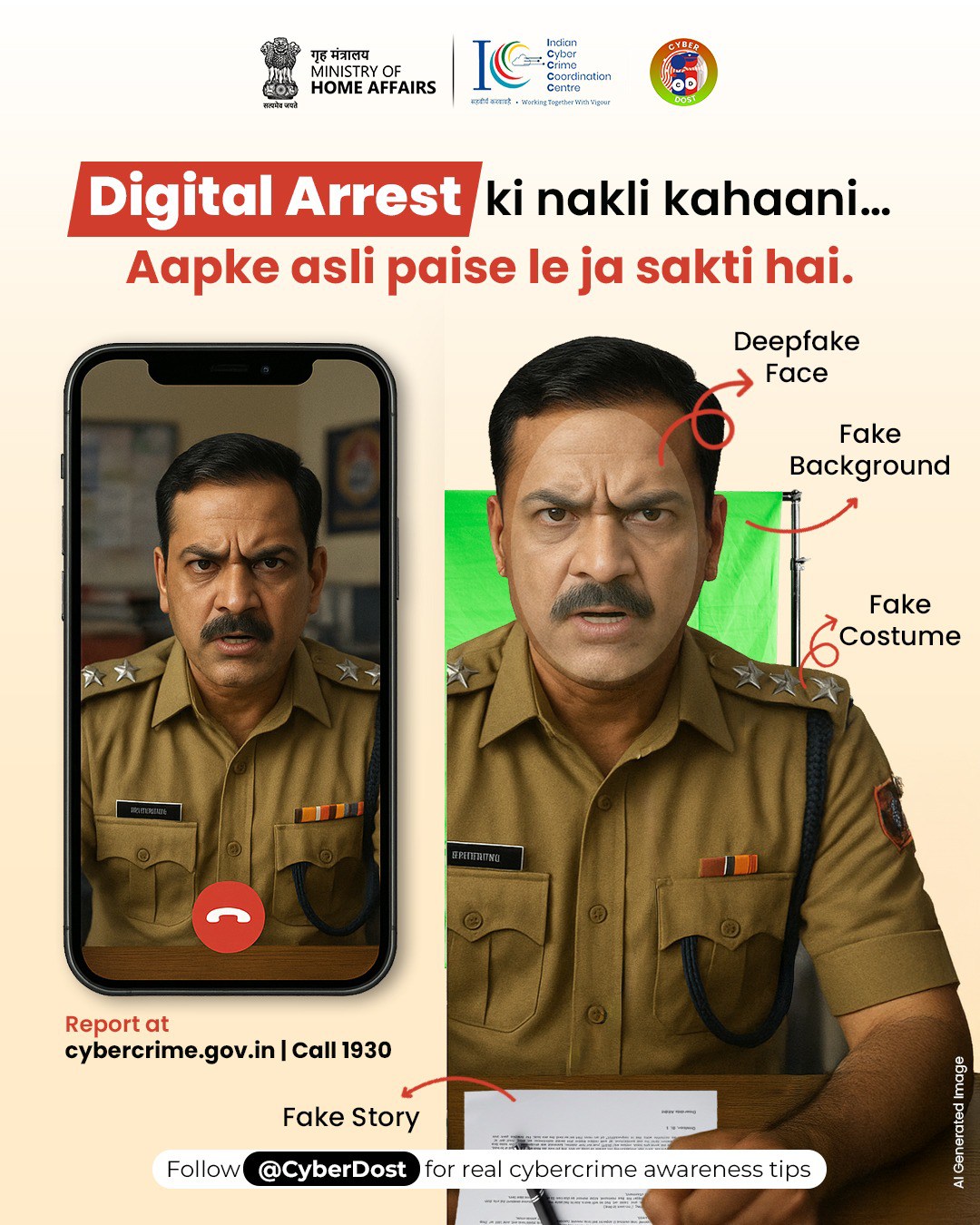
Source: Cyberdost on facebook
Who’s at Risk?
While the elderly are frequent targets, scammers don’t discriminate by age or background. Educated professionals often fall harder because the threats sound legally plausible. Targeted victims often share one trait they have assets worth exploiting.
Two recent real-life cases show just how dangerous and massive this can get:
- In Delhi, a 78-year-old retired banker was held digitally captive for days and scammed of ₹23 crore. The criminals told him that his Aadhar card was used in Mumbai in relation to a terror funding case. Only a small portion ₹2.67 crore was frozen during recovery efforts.
- In Gujarat, a senior doctor lost ₹19 crore over three months, convinced she was helping an ongoing investigation. By the time she realised the truth, her savings were gone. Police later traced 35 bank accounts linked to the scam and arrested one suspect, but most of the money was gone.
How You Can Stay Safe
- Pause before panic: No police or agency will ever threaten arrest or ask for money on a call.
- Verify independently: Hang up and contact your local police or bank using verified numbers.
- Talk to someone: Breaking the isolation enforced by the scammer is also crucial. Additionally, informing a trusted family member or friend can immediately disrupt the fraud.
- Never transfer money under pressure: Buy yourself time. All demands by the scammer must be refused.
- Report quickly: Call 1930 or visit cybercrime.gov.in. Fast reporting improves chances of fund recovery.
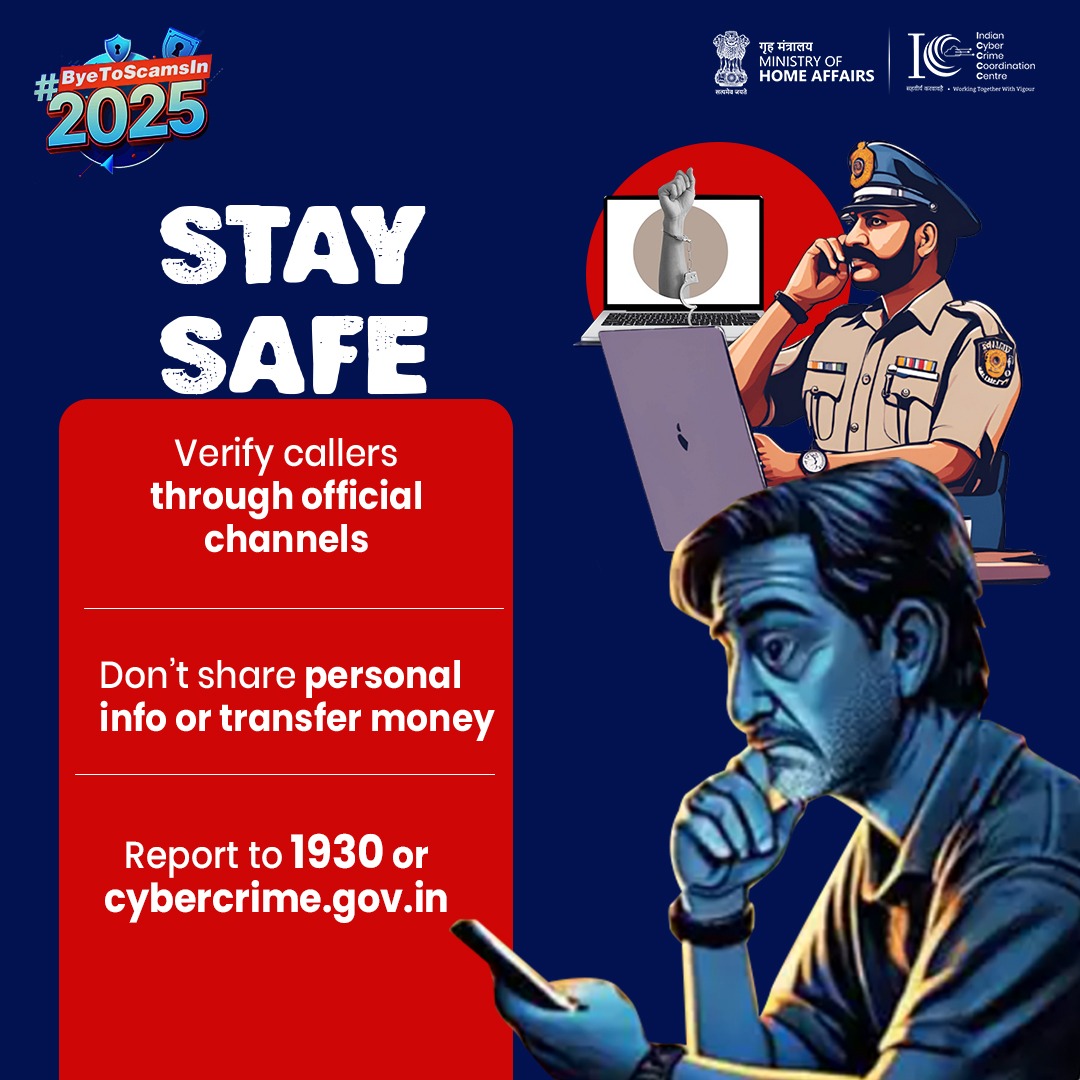
Source: Cyberdost on X
The Bottom Line
Digital arrest scams aren’t just about stolen money, they’re about stolen peace of mind. They exploit fear, authority, and our trust in official systems. The next time someone in uniform appears on your screen demanding obedience, remember: no one can arrest you through a video call. Stop, think, take action, that one calm moment could save you crores.
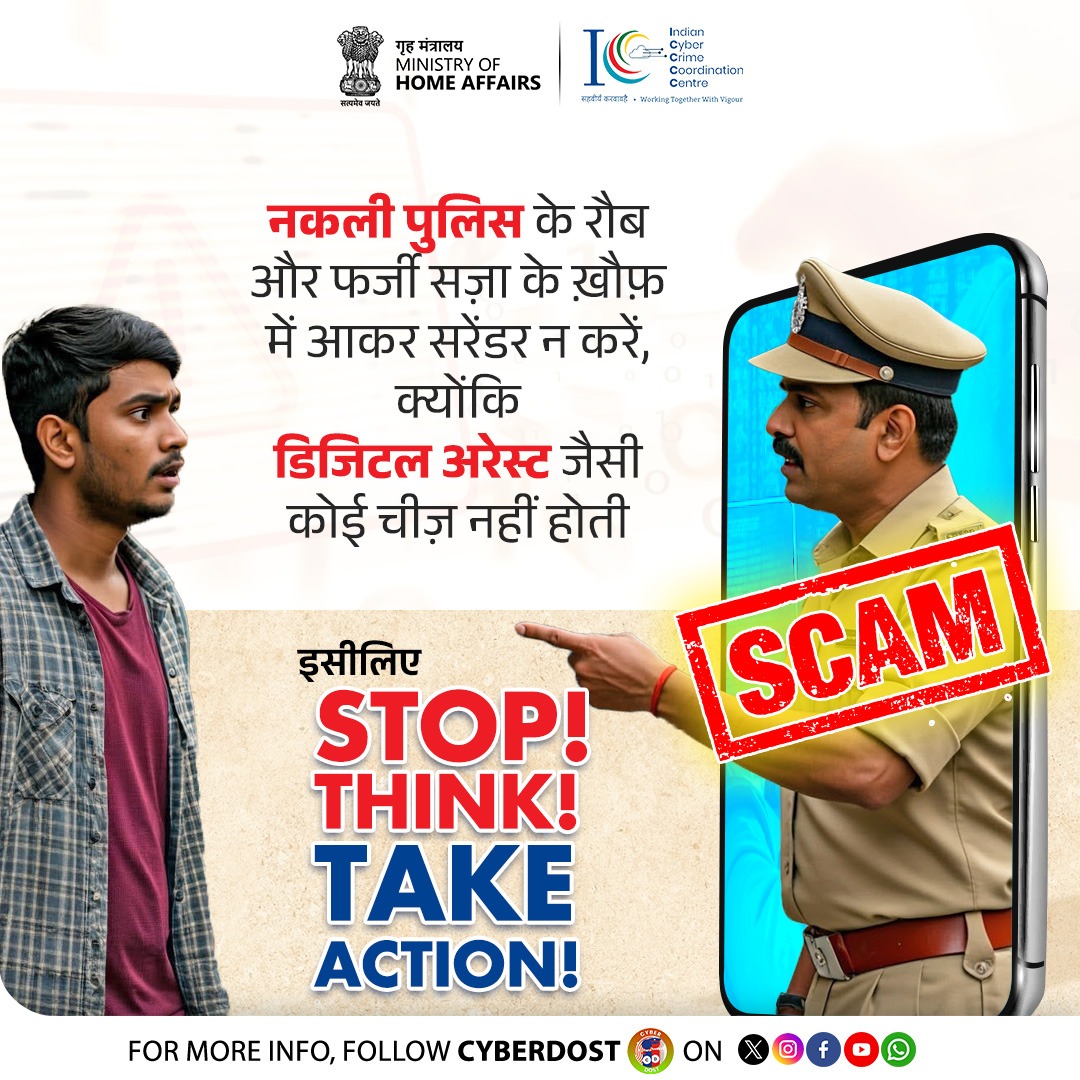
Source: Cyberdost on X
